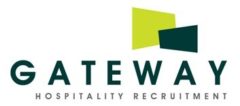For those who love food and genuinely enjoy cooking, a chef job could be the perfect career for you! For many hospitality jobs, you may not need specific academic qualifications to start work as a trainee chef. To become a chef, you will need to have a genuine interest in food and cooking, and be able to perform several tasks at once, as well as creativity and imagination for food presentation.
Chefs prepare food using a variety of cooking methods. In large kitchens Chefs typcially work as part of a team under the supervision of the head chef (also known as executive chef, kitchen manager or chef de cuisine)who runs the entire kitchen. The main tasks as a chef would include:
- preparing, cooking and presenting food to required standards
- preparation at the adequate levels
- ensuring food is served promptly
- monitoring food production for consistent quality and portion size
- stock control
- following hygiene, health and safety guidelines.
You would usually start as a kitchen assistant or trainee chef, known as commis chef. At this level you would spend time in each area of the kitchen, learning a range of skills and how to look after kitchen equipment.
With experience, you could progress to chef de partie, where you would be in charge of an area of the kitchen. The next step would be sous chef, where you would be running the entire kitchen for the head chef when needed. At head chef level, you would be responsible for creating and updating the menus, and for producing and meeting financial budgets.
You could prepare for working in this industry by taking a part-time or full-time college training course to gain some of the skills and knowledge needed in the job. Courses combine classroom study with practical experience. They include:
- Level 1 Diploma in Introduction to Professional Cookery
- Level 2 Certificate in Hospitality and Catering Principles (Professional Cookery – Food Preparation and Cooking)
- Level 2 Certificate in Professional Patisserie and Confectionery
- Level 2 Diploma in Professional Cookery.
Once working, you would receive induction training and work under the supervision of experienced hospitality staff. Your employer may encourage you to take further qualifications, such as:
- Level 3 (NVQ) Diploma in Professional Cookery
- Level 3 Award in Supervising Food Safety in Catering
- Level 3 Diploma in Advanced Professional Cookery
- Level 3 Diploma in Professional Patisserie and Confectionery
- Level 3 (NVQ) Diploma in Hospitality Supervision and Leadership.
There are also many private training academies offering a range of specialist professional development courses and qualifications, such as the Level 4 Diploma in Professional Culinary Arts. With experience you could take further qualifications related to the business side of operations, such as a foundation degree or degree in hospitality management. For more information on hospitality roles contact Gateway Hospitality recruitment today! Call us on 01536 206953 to see what we can do for you.
